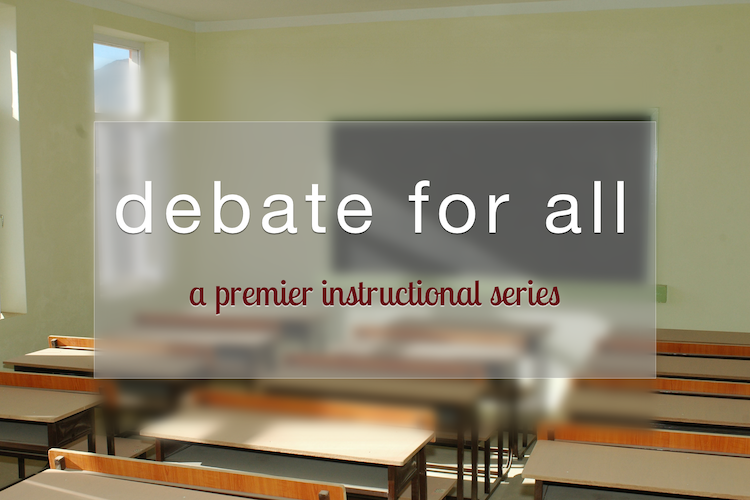Debate For All: Learning Philosophy

Learning Philosophy
The path towards improving at framework debate is straightforward since millennia of philosophers have already done the heavy lifting. Reading a few of their books will push you far above the average circuit debater. While reading philosophy is challenging, a few tips make the task easier.
To start, spreading SEP articles can make the speed drills you already do multi-functional. You won’t comprehend everything the first time through, so re-drill the sections that evade you. This forces you to read articles you wouldn’t have read otherwise with the larger aim to understand a wider breadth of issues, so you won’t get flustered debating something new or bizarre. Even still, don’t get too caught up on reading just anything; articles on value theory or utilitarianism matter more than something on Medieval Theology.
Bare in mind that SEP is a gateway to understand other literature, not a go-to for cutting cards. In virtue of being an overview with limitations on depth and partiality, an SEP article is an insufficient replacement for reading and cutting journal articles or books. After reading the SEP entry, try reading other articles that are broad and approachable. A podcasts like the Partially Examined Life is very accessible for instance. Many times philosophy professors upload lecture notes for their undergraduates. Find these resources, avoid pseudo-philosophy forums like LessWrong, and you will be well off.
Once you understood in a broad sense what a book’s project is, then you should go on to read that work. When starting off, you should only pursue reading lucid works. This suggestion would rule out Kant’s Metaphysics of Morals, but recommend G.E. Moore’s Principia Ethica. Unless you’ve already practiced reading philosophy, you might find many philosophers from over a century ago a torture to read. Most likely, you’ll draw away the wrong conclusions and be left totally lost. This is absolutely not an inadequacy on your part; it’s just the strategy that’s wrong.
While reading entire works is the optimal strategy, there are ways to cut cards more efficiently too. Often times the quotes in secondary sources will direct you to the most interesting, important arguments in the primary source. To be sure, you should read the surrounding pages of the quote until the purpose, context, and meaning of the original quote all become clear. This tip seems underutilized, but intuitive. When a philosopher quotes another’s work, that’s probably a card waiting to be re-cut.
I’ll end with a few quick tips on how to read philosophy with more retention and precision.
- Summarize every paragraph after reading it
- Take more breaks than you think you need to
- Don’t cram reading. It’s a laborious process doomed to fail if done in a time crunch
- Annotate potential cards and write taglines
- Be a more active reader by asking yourself how the argument you’re reading would interact favorably with arguments you’ve seen in-round
- After the first complete read through of a chapter or section, you should skim read that chapter over again and summarize each paragraph’s point and purpose aloud. Find any gaps in your understanding and fill them in.
Good luck!




1 Comment
[…] Researching Philosophy […]